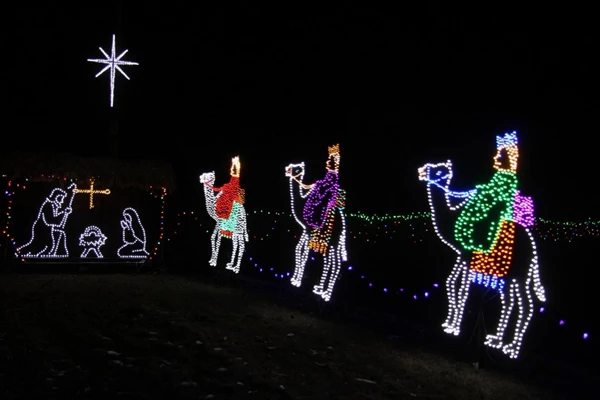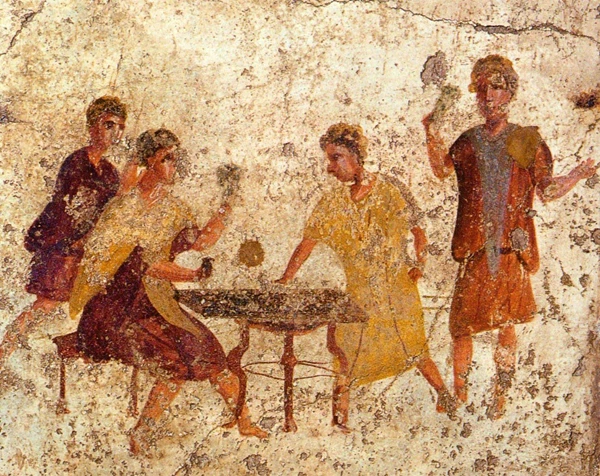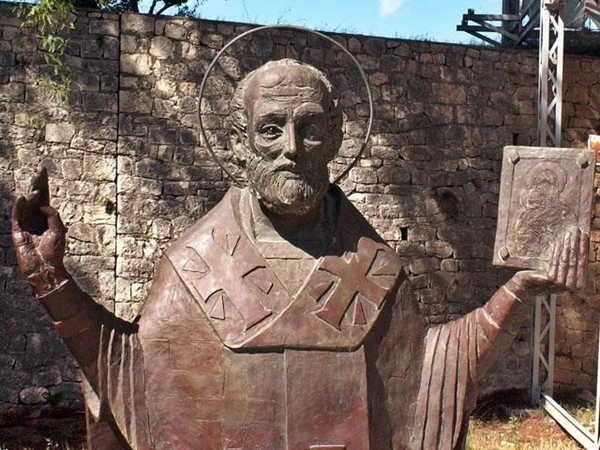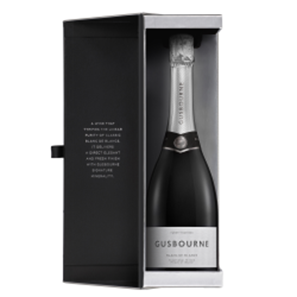If you need help buying the perfect present for any occasion, you’ve come to the right place. Our Knowledge Hub contains advice and information on the art of gift-giving, helping you put a smile on your loved ones’ faces. Read now.

Like many popular Christmas traditions, people have been exchanging gifts for a very long time. Even though trends and tastes in gifts may change, the gesture of acquiring, preparing, and bestowing something of value to friends and family is something that has been honoured by people all over the world in celebration of the festive period for thousands of years.
Today, giving presents to one another forms a central part of Christmas day, with many families dedicating a lot of time to the custom. For children, and some adults too, the chance of getting presents is often the highlight of the festive season.
Gift-giving is such a widely celebrated event in the Western world that huge industries have grown up around it — billions of pounds, euros, and dollars are spent every year creating, marketing, and distributing products that people can buy for one another.
It is important, however, to know exactly how this time-honoured tradition first began and what it represents, if only to ensure that we don’t lose sight of what our presents to one another really mean during this hectic time of year.

Gift giving at Christmas is a Christian tradition that is widely practiced around the world. However, the practice is not something that is exclusive to Christianity, as several other religions mark the end of the year with a similar custom, such as the Jewish festival of lights Hanukkah or the Hindu celebration of Pancha Ganapati in honour of Lord Ganesha.
To Christians, the gifts given at Christmas are symbolic of the tributes made to the baby Jesus by the Three Wise Men after his birth during the story of the Nativity. The Bible’s New Testament describes the Three Magi — Melchior, Caspar, and Balthazar — journeying to the location of Jesus’s birth by following a star, and upon their arrival, presenting him with gifts of gold, frankincense, and myrrh.
However, the tradition of gift giving extended long before the founding of Christianity, with roots in the festivals of the ancient Romans — in particular the festival of Saturnalia, where thanks were given to the bounty provided by the agricultural god Saturn. The festivities took place from the 17th to the 23rd of December, and were celebrated with a sacrifice and a public banquet, followed by private gift-giving, continued partying, and a wild atmosphere where social standings were done away with. During this feast, slaves would be considered the equal of their masters and free speech was embraced.

Depiction of Romans celebrating Saturnalia from a wall painting found at Pompeii.
The day that gifts were exchanged was known as Sigillaria and took place on the 19th December. As gifts of value were in contradiction to the spirit of the season, the Romans exchanged more modest items, such as candles, seasonal figurines, and ‘gag gifts’, which were designed to amuse or terrify the other guests. Etiquette dictated that the lowlier the gift, the stronger the bond of friendship it was said to represent. Some bosses often gave a gratuity known as a ‘sigillarcium’ to their clients or employees in order to help them purchase their gifts.
Unlike many of the more cultish festivals held in the Roman Empire, Saturnalia was widely celebrated throughout all of the territories of Rome at the end of the calendar year. As it was a much-loved festival thanks to its carefree atmosphere, generous gift-giving, and lavish entertainments, people were less inclined to give up its popular traditions. This made it a lot harder to deal with when the religious status quo changed in the Empire.

Russian Orthodox statue of Saint Nicholas in Demre, Turkey.
The conversion of Emperor Constantine to Christianity in AD 312 signalled the beginning of the end of pagan celebrations in the Empire, but early religious leaders couldn’t simply ban the popular Saturnalia, as there would be a backlash. There is a theory that they used many of the traits of the festival when establishing Christmas, a rival feast that would take Saturnalia’s place, but commemorate a Christian occasion: the birth of Jesus. The exchange of gifts was probably one of the traditions carried over from the old to the new.
The old pagan custom of gift-giving was rationalised into Christianity by attaching strong associations with the gifts of the Magi to Jesus, and was also likely influenced by the life of Nikolaos of Myra, a 4th century saint who was famed for his fondness of giving people gifts. When he was venerated as a saint, he became more widely known as Saint Nicholas, which is recognisable as the origin of the name ‘Santa Claus’.
Nikolaos’s kindness and generosity have become embodied in the Saint Nicholas character that is honoured in many parts of the world, particularly in areas of Europe, where the feast day of Saint Nicholas is widely celebrated on the 6th December. Known as Sinterklaas in Dutch, and Père Noël in France, this figure has played an important role in the European folklore of the festive season since medieval times, evolving into the annual gift-giver that is said to bring children their presents.
As time passed, the spread of Christianity continued as trade routes were established and new territories were converted to the religion. This meant that more and more people were introduced to the wonders of the gift-giving celebration that marked the end of the year and everything that it stood for. In England, the Anglo-Saxon people were converted to Christianity by missionaries from both the Celtic tradition from Ireland and the Roman tradition from the heartlands of the former Roman empire. It was not an easy period, as each strand of the religion often came into conflict with one another. On top of this was the added threat of the pagan Viking raiders from the Nordic countries. The end result was a series of Christian kingdoms that became familiar with the longstanding values of early Christmas, including the act of gift-giving.
A small group of people from these isles would eventually set sail over the Atlantic Ocean for America in 1610, searching for a new place to freely practice their strand of Christianity. These people were known as the Pilgrims, and they set up the first Christian colony in North America.
The New World wasn't just admired by the Pilgrims, however, and they were soon joined in the thousands by the Puritans, who were followers of a strict strain of Christianity which eschewed any Roman Catholic beliefs. They saw much of the ceremonial grandeur of Catholicism to be in contradiction to what the religion stood for, preferring a simpler, more disciplined lifestyle. They saw festivals like Christmas as part of this excess, and banned it outright. There are a few stories of non-Puritan people making merry at Christmas, and being severely reprimanded by leaders of the community.
By 1776, 75% of people in New England were of the Puritan faith, and this domination of the region meant that Christmas remained outlawed for a long time. In fact, it wasn't until 1870 when Christmas became a federal holiday that the no-nonsense attitude to the festive period was relaxed.
Coca Cola advert from 1964 featuring Santa Claus.
In the USA in the 20th century, Christmas became a phenomenon. The boom of the American dream and times of economic prosperity after World War Two fuelled a whole industry around the holiday. With the country’s separation of Church and State embedded into the constitution established after the Declaration of Independence, the people of the country were able to make the decision to celebrate the holiday with or without the religious trappings historically associated with Christmas. Although the Christian principles behind the festive period were not forgotten, the material aspects, such as decorating the home, buying gifts, and preparing meals were emphasised as the best way to enjoy this secular celebration. After the repression of Christmas by Puritan values, the new century saw the practice of gift-giving return and the emergence of the secular seasonal traditions that are still dominant today.
The figure of Santa Claus is a good example of something that has both secular and religious significance. He is based on the European Saint Nicholas, who in turn is inspired by the religious saint. The character was so popular that he was later adopted by the secular Christmas traditions that grew to dominate the USA, featuring as the gift-giver to children in the media, and on adverts and cards, perhaps most memorably in Coca-Cola’s ‘Holidays are coming’ ad campaign. The commercial potential of the festive period was identified and capitalised upon by the retail sector, who marketed it to the public, creating the modern seasonal industry of Christmas that has grown up around the gift-giving tradition of Santa.
With the globalisation of the late 20thcentury, the USA’s secular Santa and his presents took hold in many societies that previously had not viewed the 25thDecember as a commercial event. It is commonplace to see the story of Santa and the exchange of gifts in countries where Christianity is a minor or non-existent religion. For example, in Japan, a country where less than 1% of the population identify as Christian, people mark Christmas as a purely commercial holiday, where giving one another presents is celebrated without any reference to religion at all.
In 2015, the United Kingdom was on course to spend around £24.4 billion on Christmas gifts, with approximately 760.4 million gifts expected to be exchanged, according to research from RadiumOne. These figures demonstrate just how big the tradition of purchasing gifts at Christmas has become, and how crucial it is to the retail sector of the UK’s economy.
We are at a stage now where the average person will not just buy two or three gifts for their closest friends and relatives, but on average will, according to the same survey, buy 14.8 gifts for 8.3 people, which just goes to show that people are now enjoying exchanging gifts with an expanded social circle of family, friends, co-workers and more.
Online shopping has a large role to play in Christmas shopping, with the more tried and tested method of shopping on the high street playing an ever smaller role. The same research found that less than one in seven people will do their research and shopping in-store. Before the internet came to the fore, heading out to a city centre on a mission to purchase Christmas gifts was an annual event, and people would have to source all of their presents on these trips or face further expeditions at a later date.
The appeal of online shopping can be found in the convenience it gives to the shopper and the lower prices retailers can afford to sell their goods at. This is a major plus for those who are working to budget, evident in the fact that, according to RadiumOne’s survey, 53% of people earning less than £20,000 are more likely to rely on online retailers when sourcing gifts.
On the other hand, two of the groups most likely to spurn online shopping and head to the high street are those earning over £80,000 and shoppers over the age of 55. This suggests that for those with less budget constraints and those who may be less tech-savvy are more likely to embrace the traditional Christmas shop.
The exchange of presents during today’s Christmas celebrations takes place within a melting pot of both religious and secular traditions. Many families in the Western world enjoy the festive season without much reference to Christian beliefs at all, while on the other hand, some will attend church services and decorate their home with a nativity scene. There is a lot of diversity in the way that Christmas is observed, but the ritual of gift-giving is one of the traditions that is almost universally practiced.
Taste in gifts has also shifted considerably over the evolution of Christmas. Looking back at the values of the Romans, where the idea was to buy simpler gifts for your closest friends, the opposite seems to be true now, with larger and more lavish presents being reserved for the people that we care about the most. That’s why it is fairly commonplace for the most expensive gifts to people’s closest relations, such as partners and children.
Even though Christmas has evolved over the thousands of years that it has been celebrated, the exchange of gifts is one of the traditions that has remained constant. The commercialisation of the festive season comes in for a lot of criticism, particularly the consumerist values that have attached themselves to the holiday through the buying and giving of presents. Many believe that these values tend to obscure the true meaning of Christmas.
However, it is important to consider that the reason people exchange gifts is chiefly to show affection and appreciation for others, which is a commendable quality. Since the times of Saturnalia right through to the present day, giving presents has been an act of kindness to others, something that will probably be celebrated long into the future.
If you are looking for the perfect Christmas gifts for your loved one or your friends and relatives, at Gifts International we’ve sourced many quality products for you. Choose from a whole range of fantastic present options, such as flowers, chocolates, hampers, champagne, wine, and so much more. We’ll even do the hard work and have your items delivered directly to their door.





